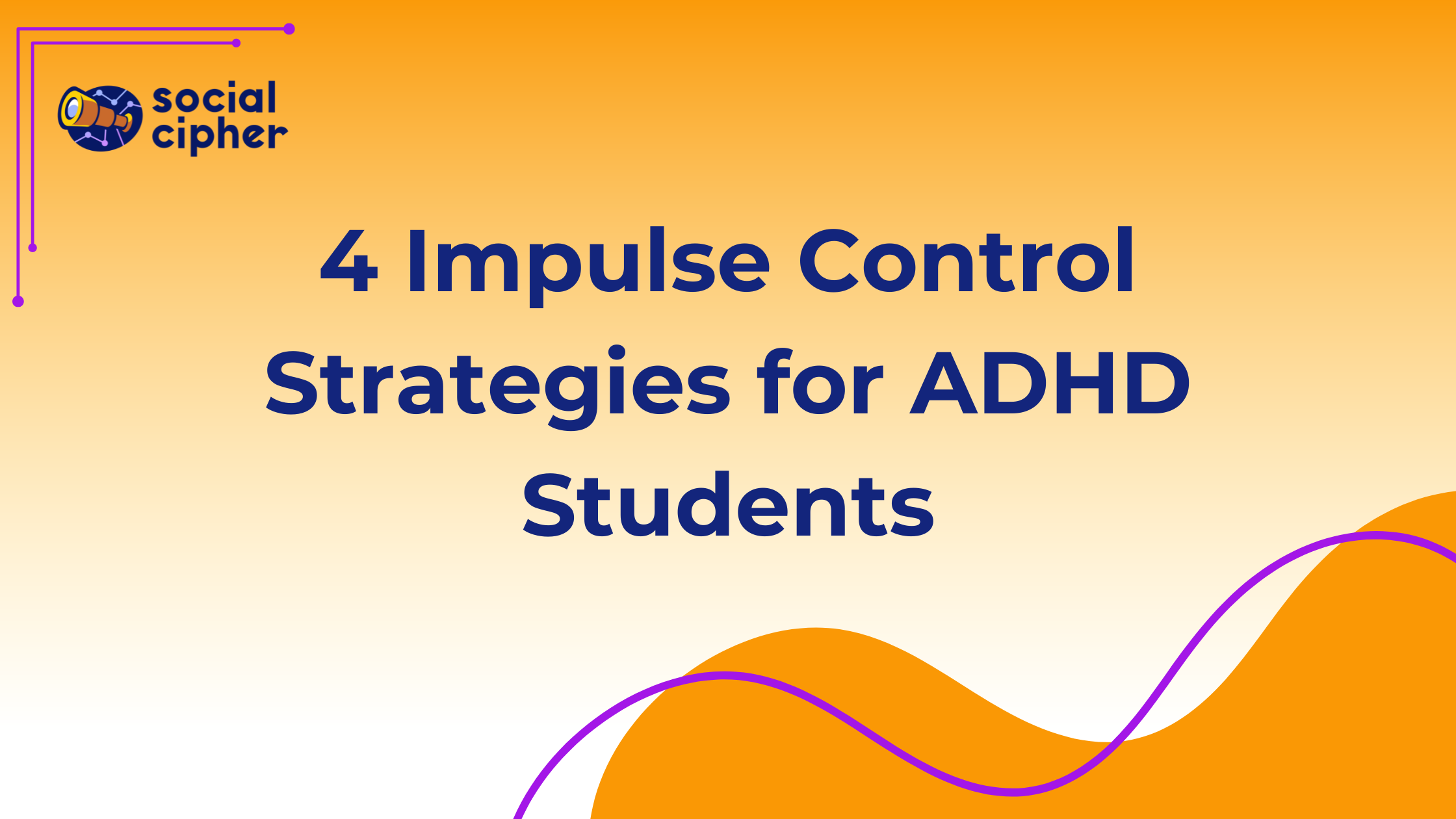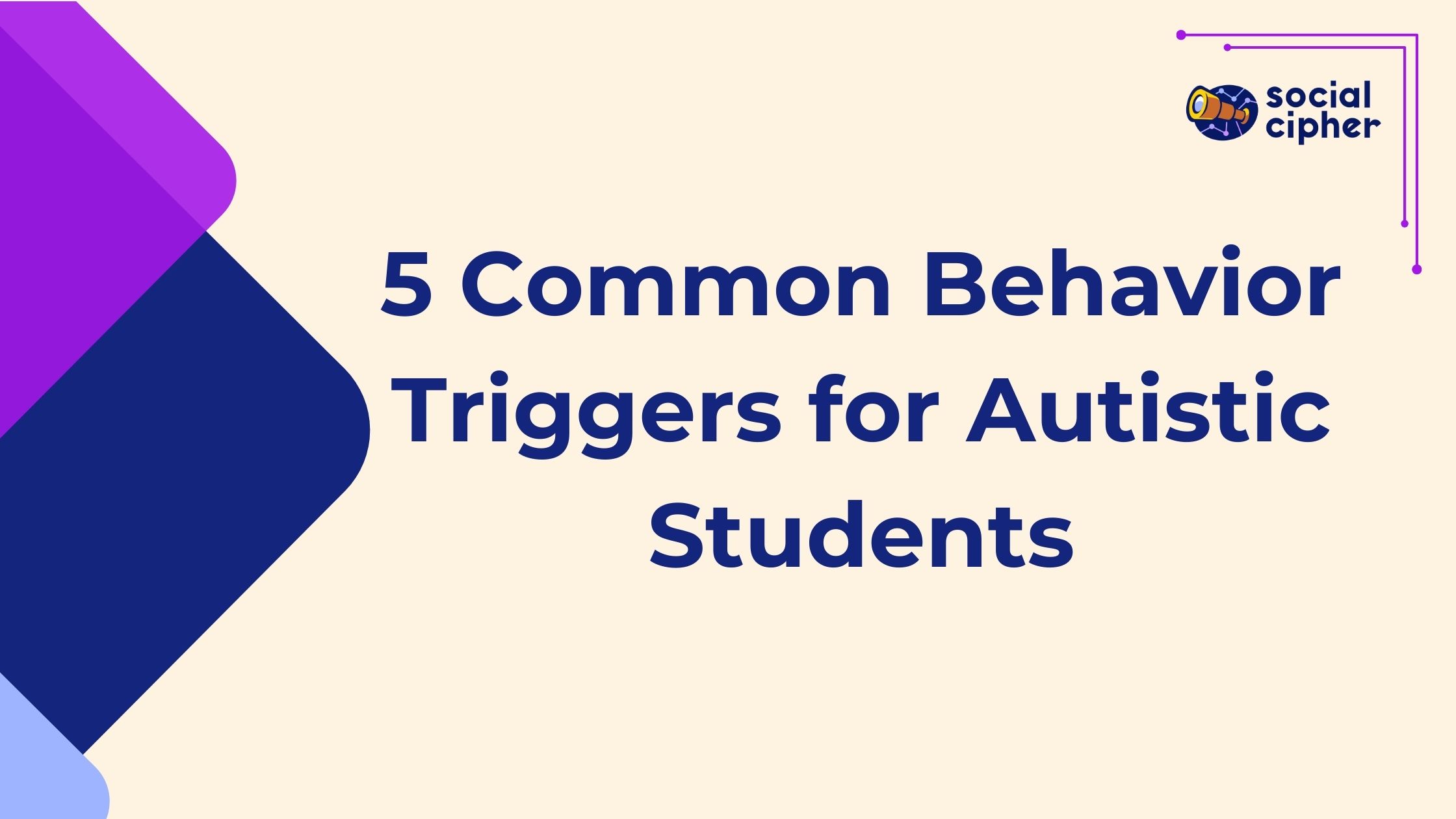%20(7).png)
3 Signs Your SEL Program Isn't Working for Neurodivergent Students
Social-emotional learning programs (SEL) are designed to help students build core competencies like self-management, responsible decision-making, self-awareness, social awareness, and relationship skills. Unfortunately, many fall short when it comes to supporting neurodivergent students in developing these skills. If your SEL program was built without neurodivergent students in mind, chances are it’s leaving some students behind. This gap in support often adds more pressure on educators who are trying to meet their students’ diverse needs.
Here are three signs that your SEL program is not supporting neurodivergent students the way it should and what to look for instead.
1. Neurodivergent students are not reflected in the materials.
If neurodivergent students rarely see characters or examples that reflect their lived experiences, they are less likely to connect with the lessons. Many traditional SEL programs focus on expected behaviors that align with neurotypical norms. This can make neurodivergent students feel like they are being asked to mask their identities instead of developing a better understanding of themselves.
What to look for instead: Choose SEL tools that affirm diverse ways of thinking, feeling, and communicating. Diverse representation helps students see their strengths and challenges as part of who they are, not pieces of them that need to be “fixed.” Representation also shows students that they are valued and respected.
2. Lessons focus on compliance over understanding and connection.
If your SEL lessons emphasize neurotypical behaviors, such as making eye contact or sitting still, as the end goals, they are prioritizing compliance over connection and understanding. This approach may temporarily reduce certain behaviors, but it does not build long-term skills like emotional regulation. For neurodivergent students who may communicate or self-regulate in different ways, lessons that focus on compliance can feel invalidating and discouraging.
What to look for instead: Look for SEL programs that teach students to recognize emotions, express their needs, and identify coping strategies that work for them. The best SEL programs help students understand why certain strategies work, not just what to do. When SEL focuses on connection and understanding instead of conformity, students feel safe to be themselves.
3. Students are not generalizing SEL skills outside the classroom.
Even if students can recall coping strategies during a lesson, that does not mean they can apply those skills in real-world situations. If you notice that students struggle to use coping strategies or other SEL skills during unstructured times, like lunch and recess, or cannot apply the same skills at home or in other settings, this is a sign the SEL program is not working.
What to look for instead: Programs that provide consistent opportunities for practice in different contexts help bridge the gap between the classroom and real life. Role-play, storytelling, and game-based learning are all effective ways to help students apply SEL skills outside of structured lessons. Interactive experiences like these can make abstract concepts like empathy and self-advocacy easier to understand and put into practice.
Effective SEL programs don’t teach students how to fit in or hide who they are. They help students understand themselves, build authentic relationships, and use tools that work for them. If you’re looking for ways to make SEL more meaningful and effective for neurodivergent students, Social Cipher offers a comprehensive, research-backed, SEL solution that helps students build and strengthen SEL skills in a supportive, affirming environment. Our Ava platform includes an SEL curriculum, video games, and educator dashboard that work together to give students a safe space to practice real-world skills while providing educators with the insights and flexibility they need to support every learner effectively.
Are you ready to see how Ava can make a difference in your students’ social-emotional skills and relationships? Let’s chat.

.png)


.png)




